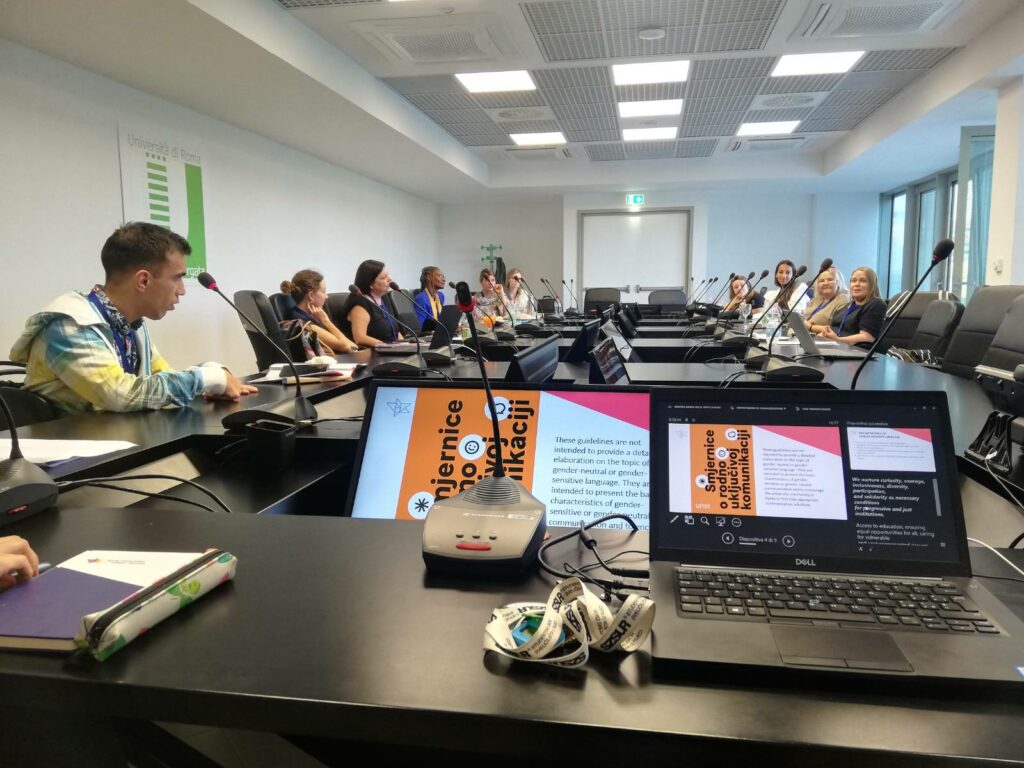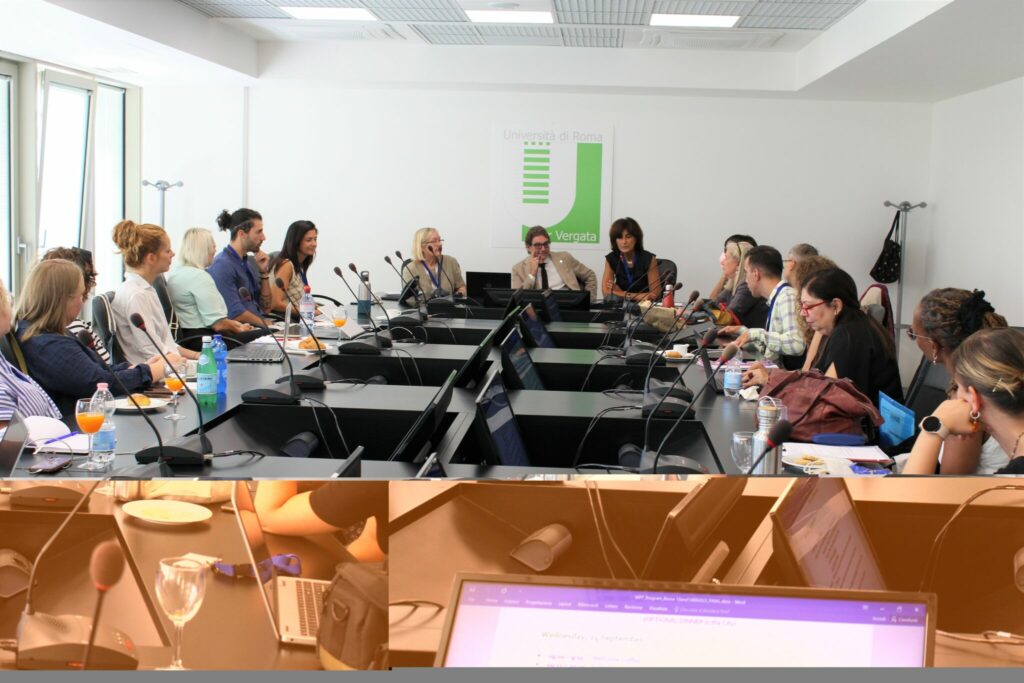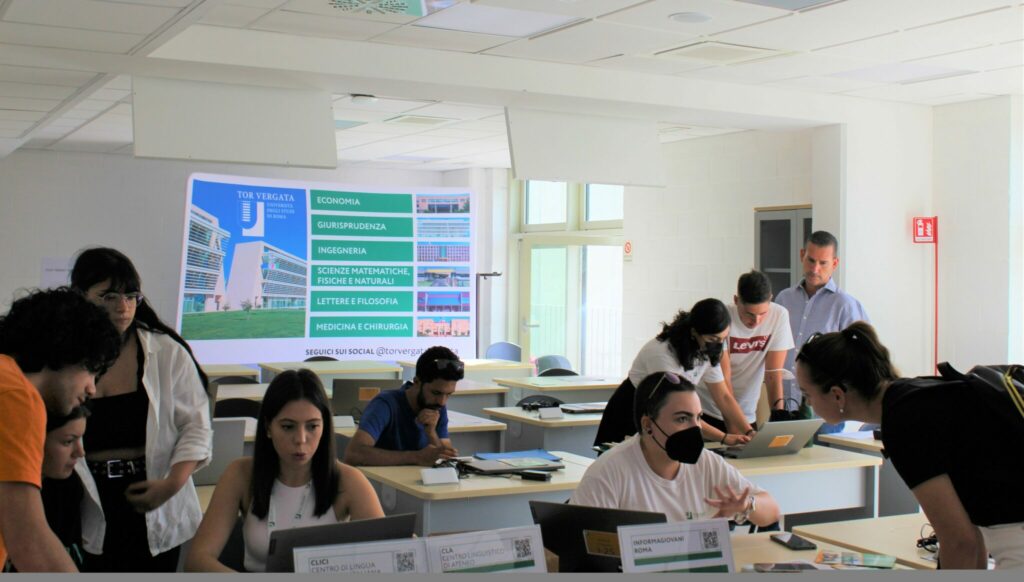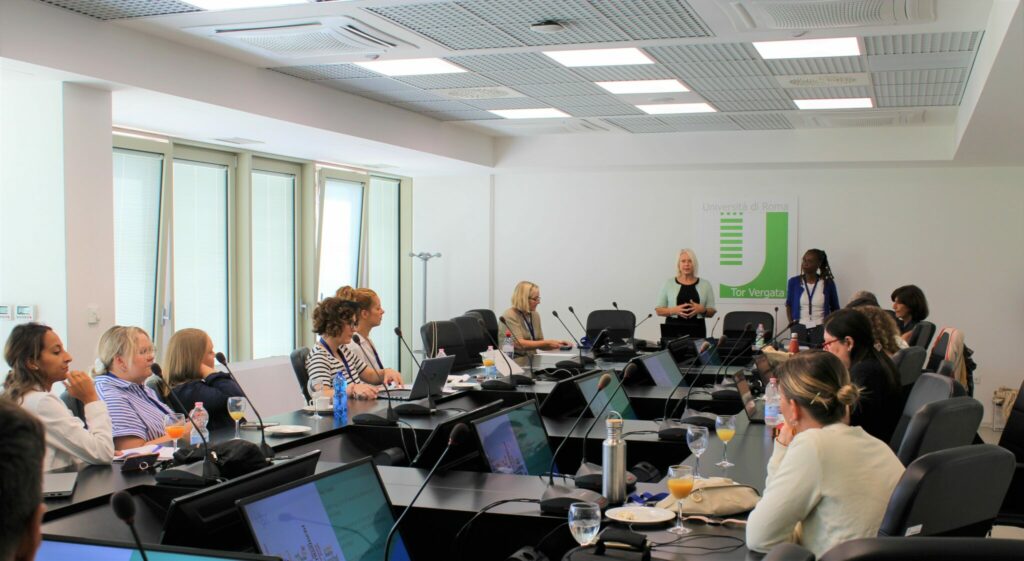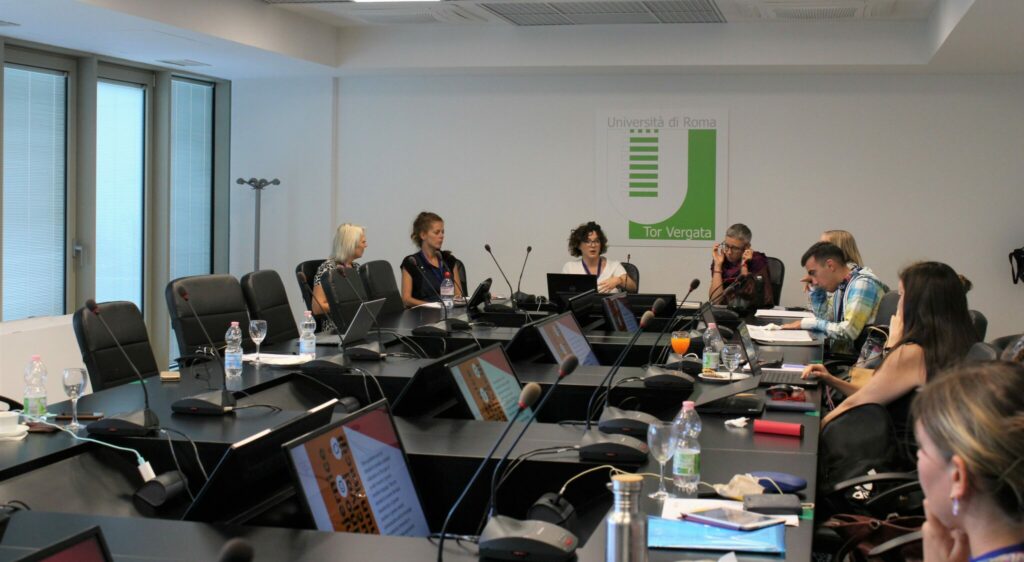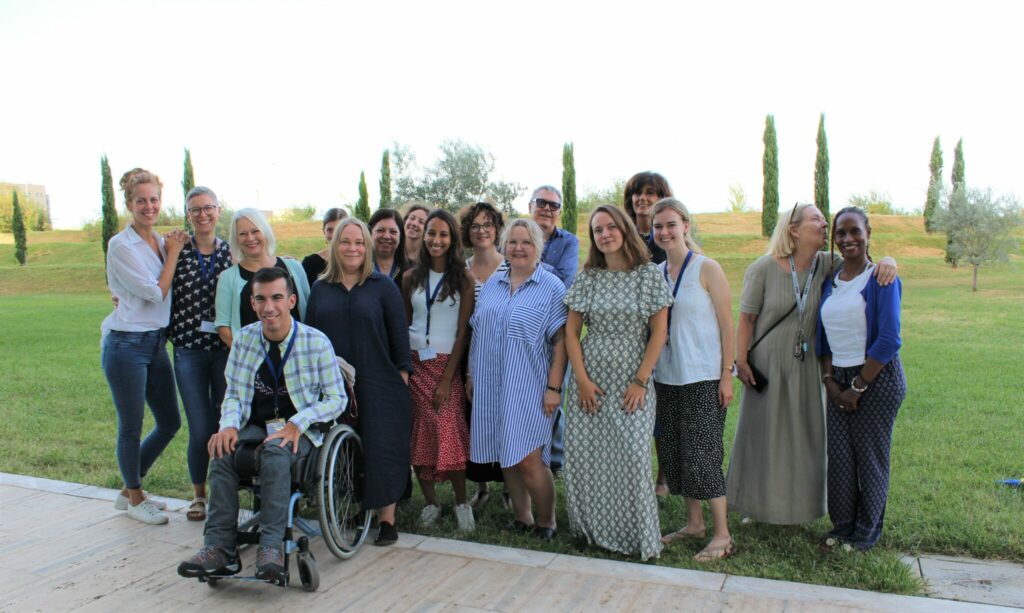Representatives of the University of Rijeka and members of the Diversity and Inclusivity Team – Daria Glavan Šćulac, Ana Tomaško Obradović, Sandra Nuždić, and Tino Vodanović – visited Tor Vergata University in Rome in September. As part of the YUFE work package dedicated to improving diversity and inclusive policies and practices in the YUFE network and partner universities, the meetings in Rome included the sharing of experiences and good inclusive practices of the gathered representatives from seven YUFE universities.
Tor Vergata University presented a number of initiatives that improve the position of people in underrepresented areas or in vulnerable positions, such as the Welcome Office, the Committee for the Guarantee of Equal Opportunities, Workers’ Welfare and Anti-discrimination (CUG), the Commission for the Inclusion of Students with Disabilities and Specific Learning Difficulties (Caris) and others. Also presented was the Crossing Gender Boundaries project, which holds roundtables and gathers expertise in the areas of gender equality in communication, inclusive and differential education, women’s empowerment in underrepresented areas, and sustainability of initiatives.
For the past 16 years, the University of Rome has been running the “Didattica in Carcere” (Italian: Didattica in Carcere) programme, in which university professors volunteer to teach inmates of Rebibbia prison, with the clear aim of enabling them to enjoy their constitutionally guaranteed right to education. Attendees had the opportunity to hear (and read!) personal testimonies from prisoners about how the opportunity to learn about literature, theatre, art, law, and business helped them integrate into the community after release from prison.
Karen Bush from the University of Essex and Cassandra Ellerbe from the University of Bremen presented a workshop on privilege, power, and integration of those who are perceived or identified as different from “traditional” members of the community in society, the workplace, and academia. The workshop aimed to raise awareness of the real or perceived advantages we have because of certain personal characteristics. The message is clear: awareness and understanding of our own privileges is a prerequisite for change within ourselves and furthers our responsibility and commitment to a more inclusive, equal society.
Representatives of the University of Rijeka presented the publication “Guidelines on inclusive communication: using gender-sensitive language at the University of Rijeka”, which will be in the hands of the University’s students and staff at the beginning of the new academic year. Recognising the importance of language in reflecting attitudes, behaviours, and norms, the guidelines aim to raise awareness of communication in the university environment and encourage staff and students to adequately address persistent forms of gender inequality and find new, appropriate communication solutions.
The guidelines were developed by the Gender Equality Council Working Group in accordance with the University of Rijeka Gender Equality Plan 2021-2025 and the Senate Declaration on the Use of Gender-Sensitive Language at the University of Rijeka with the support of the Horizon 2020 project “Supporting and Implementing Plans for Gender Equality in Academia and Research” – SPEAR.
